Language Clubs: Promoting cultural diversity and biliteracy
Lindsey Sukany, Sherwood Elementary, Springfield, MO
Introduction
The students in our school come to us from many different backgrounds and cultural experiences. As educators, it’s our job to make all students feel welcomed and safe at our school and in our classrooms. Promoting and valuing the first language helps English learners and bilingual children feel more self-confident and respected for who they are. This project gives students the chance to show off their first languages and share their cultures. English learners show leadership through this project while monolingual students explore the many languages we have at our school.
Step-by-Step Plan
First, we determined the languages spoken by the students at our school.
After we had a list of languages, we ordered common materials in each language to use in our language lab including bilingual picture books, picture dictionaries, flashcards, activity books, coloring books, and magnetic letters.
For this project, we created a language lab as a club to promote learning about specific languages and cultures. We scheduled times to introduce the language lab to each class during library time. Parent permission was requested because club activities took place outside of instructional time. Students were given the option to participate or go to recess once a week. On the permission forms, parents were asked to sign up to be guest readers. Several parents volunteered to read books in their home languages and over 60 students (second through fourth grades) participated. Many English learners participated and were able to be leaders and share about their home languages.
Our language lab focused on 6 languages spoken by students and families at our school. These included Spanish, Ukrainian, Russian, Korean, Vietnamese and Swahili.
During each session, the students discussed where each language is spoken and practiced common phrases. Parent volunteers helped model language skills and read bilingual books to the groups. When a parent wasn’t available, we used YouTube videos so the class could hear the language spoken by a native speaker. Each session ended with participants taking a closer look at each language. When language-specific resources were available, we utilized flashcards, magnetic letters, picture books, picture dictionaries, coloring books, or activity books to practice writing the alphabet or different words.
Last, we planned a celebration with all students who participated in the language lab. Each student received a multilingual language lab T-shirt for participating.
Timeline
See the step-by-step plan above.
Budget
| Custom Stamp - Personalized Logo/Address/Name Stamp Multiple Sizes Wooden Rubber Stamps | $16.99 | |
| LovesTown 20 PCS Globe Squeeze Balls | $15.99 x 4 | |
| Large World Map Tapestry Wall Hanging | $17.97 | |
| International Flags | $19.99 | |
| Where Is My Little Crocodile? - Onde está o meu pequeno crocodilo?: Bilingual English Portuguese Picture Book for Children | $9.95 | |
| My First Big Portuguese Picture Dictionary: Two in One: Dictionary and Coloring Book | $6.99 | |
| My First Portuguese Book | $9.50 | |
| Portuguese Alphabet Coloring Book: Color & Learn the Portuguese Alphabet and Words | $6.99 | |
| My Most Beautiful Dream – Ndoto yangu nzuri sana kuliko zote (English – Swahili) | $9.95 | |
| My Swahili - English WORDS | $9.99 | |
| My First Swahili Alphabets Picture Book with English Translations | $14.49 | |
| English To Swahili Colour & Learn: Animals | $7.79 | |
| My Most Beautiful Dream - قشنگترین رویای من (English - Persian, Farsi, Dari) | $9.95 | |
| English-Pashto School Children’s Bilingual Picture Dictionary | $10.99 | |
| The Lion Who Saw Himself in the Water: English-Pashto Edition | $11.90 | |
| PASHTO ALPHABET COLORING BOOK: پښتو الفبا | $8.99 | |
| The Rainbow Fish/Bi:libri - Eng/Korean PB | $13.93 | |
| My First Korean Book. Korean-English Book for Bilingual Children | $9.50 | |
| Soft Foam Korean Alphabet Magnetic Letters | $9.70 | |
| Fun Start Korean Workbook for Kids 1 | $15.95 | |
| Korean Alphabet: Korean Hangul Learning and Writing Workbook for Beginners and Kids Vol.1 | $8.99 | |
| Fun Start Korean Workbook for Kids 1 | $15.95 | |
| Korean Alphabet: Korean Hangul Learning and Writing Workbook for Beginners and Kids Vol.1 | $8.99 | |
| Sự tích chú Cuội The Legend of Cuoi, the Man on the Moon: Vietnamese bilingual tale for Trung Thu | $9.49 | |
| The Rainbow Fish/Bi:libri - Eng/Vietnamese PB | $10.95 | |
| The Toddler's Handbook: Bilingual (English / Vietnamese) | $30.22 | |
| My First Vietnamese Book. Vietnamese-English Book for Bilingual Children: Vietnamese-English children's book with illustrations for kids | $8.99 | |
| English Vietnamese 50 Animals Vocabulary Activities Workbook for Kids: 4 in 1 reading writing tracing and coloring worksheets | $9.99 | |
| Let's Learn Vietnamese Kit: A Complete Language Learning Kit for Kids | $13.92 | |
| Who Lives in the Wood?: An Illustrated Ukrainian-English Bilingual Story for Kids - Simple Short Sentences for Beginners | $8.99 | |
| My First Ukrainian Book. Ukrainian-English Book for Bilingual Children: Ukrainian-English children's book with illustrations for kids | $9.50 | |
| First Ukrainian English Dictionary Language Learning Books for Children: 100 Basic bilingual animals words vocabulary builder card games. | $9.99 | |
| Lets Learn Ukrainian Alphabet 180 New Words: Learn Ukrainian Letters and Words With Fun. English Translations and Transcription | $10.99 | |
| Ukrainian handwriting practice workbook: Ukrainian cursive writing practice for kids and adults . Alphabet, words, sentences | $8.99 | |
| Who Lives in the Wood?: An Illustrated Russian-English Bilingual Story for Kids - Simple Short Sentences for Beginners | $8.99 | |
| My First Russian Book. Russian-English Book for Bilingual Children: Russian-English children's book with pictures | $9.99 | |
| The Toddler's Handbook: Bilingual (English / Russian) (английский / русский) | $8.99 | |
| Russian Alphabet For Kids Coloring Book: Learning Russian For Kids and Toddlers | $6.99 | |
| Ingenio Spellable Bilingual Spelling Game | ||
| eeBoo Spanish Bingo Vocabulary Game | $24.98 | |
| BOHS Spanish Literacy Wiz Fun Game - Espanol Lower Case 60 Flash Cards - Preschool Language Learning Educational Toys | $16.99 | |
| My First Bilingual Little Readers: Level A: 25 Reproducible Mini-Books in English and Spanish That Give Kids a Great Start in Reading (Teaching Resources) | $8.99 | |
| The Toddler's Handbook: Bilingual (English / Spanish) (Inglés / Español) Numbers, Colors, Shapes, Sizes, ABC Animals, Opposites, and Sounds | $9.99 | |
| My First English - Español Learning Library (Mi Primea English - Español Learning Library) : Boxset of 10 English - Spanish Board Books | $22.49 | |
| My First Spanish Book. Spanish-English Book for Bilingual Children: Spanish-English children's book with illustrations for kids | $9.50 | |
| 595 Spanish Vocabulary Flash Cards – Text & Audio Pronunciation with Pictures | ||
| Complete Book of Starter Spanish Workbook for Kids, PreK-Grade 1 Spanish Learning, Basic Spanish Vocabulary, Colors, Shapes, Alphabet, Numbers, Seasons, Weather With Tracing and Coloring Activities | $10.39 | |
| Complete Book of Spanish Workbook for Kids, Grades 1-3 Spanish Learning, Basic Spanish Vocabulary, Alphabet, Numbers, Colors, Parts of Speech, Expressions, Dates, and Songs With Spanish Learning Cards | $13.49 | |
| Language Lab T-Shirts for participants | $693 | |
What did it look like?



Sustainability
We plan to continue the language lab for many years. Students will not be able to check out materials we ordered for the language lab to keep them in good condition. However, the librarian ordered many multilingual and multicultural books that will be available for students to check out. Everyone will greatly benefit from these new resources for years to come. We can easily reproduce the language lab concept by purchasing additional resources in other target languages.
Reflections
Sherwood currently has 52 students who have a first language other than English. The language lab was offered during recess time at each grade level. The lab houses games, activities, and books representing a variety of cultures and languages from our community. Not all language learners participated, but those who did really got a chance to shine. It was especially powerful when parents visited our language lab and read in their home language. Native English speakers found it motivating to investigate books in other languages and learn about new cultures. The next language lab session we offer will focus on Spanish, so we ordered more resources in the target language. We hope to expand language lab activities to additional grades if scheduling allows.
The language lab, as well as our growing library of bilingual books, has truly created a more welcoming environment for all of our students.
What did it look like?

See Examples of Winning Demonstration Projects
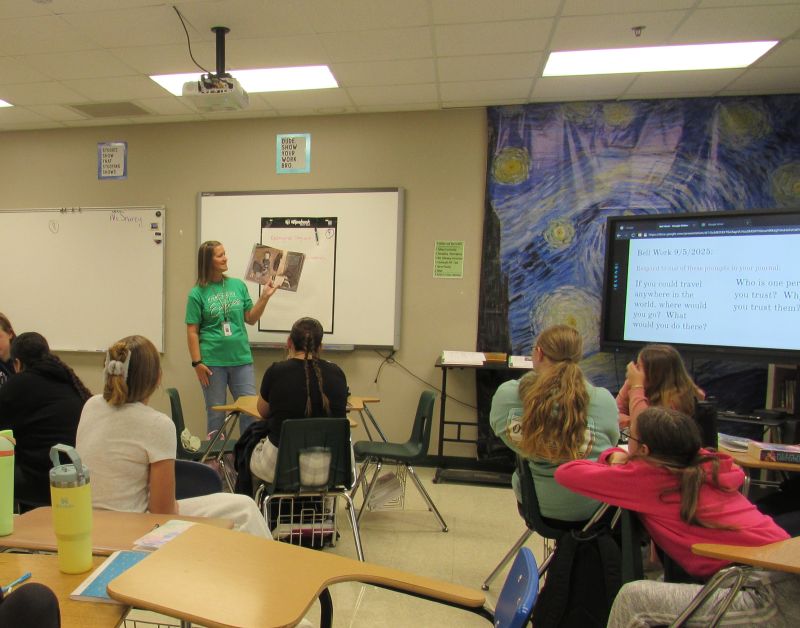
Multicultural Monday Read-Alouds
The goal of this project is to increase multiliteracy and multicultural awareness with students through select read-aloud books. Of the many excellent books available, thirty were chosen as read-alouds for sharing weekly with the class throughout the school year. For each book, I also created a mini…

Bringing Families Together:
The Monett community is home to a linguistically diverse population, with students speaking over twenty different languages or dialects. The number of families considered Newcomers, those newly arrived in the United States, is rapidly increasing in our schools. As a result, it is critical for…

Multilingual Language Games:
Many times, families do not have access to language and education-based resources. The multilingual board game lending library is designed to celebrate bilingualism and help bridge the gap between home and school. Games encourage growth in the areas of English language acquisition as well as each…

Read, Speak, Succeed: Empowering Future Global Communicators
The primary objectives of this project are twofold: to enhance literacy and language proficiency by reading Spanish-language books and materials. Given that my students are studying Spanish with the ultimate aim of effective communication, it is essential for them to excel in both understanding…

Using Bilingual Texts to Support Translanguaging for English Learners
English Learners (ELs) face unique challenges in the classroom. In order for them to access grade-level curricula in their second language (L2), educators—both English Language Development (ELD) teachers and classroom teachers—provide many types of scaffolds to support students' understanding. Some…

Reading Artwork: Using Family Dialogue to Aid Meaning-Making for English Learners
Visual literacy and peer conversations are critical components of early language learning. This project creates new interactions for English Learners (ELs) between their peers and family. First, by engaging in classroom conversations while “reading” art, followed by sending wordless…

Illuminating Diversity: A Mural to Share Stories through a Multicultural Lens
This project included a 10-Day Artists-in-Residency with Rodrigo Alvarez and Isaac Tapia. These artists worked with students in our English Language Development (ELD) Program to design and paint a 10’x40’ mural, emphasizing the cultural and linguistic diversity of Parkview students both past and…

World Fest: Showcasing Cultural and Linguistic Backgrounds
World Fest was a beautiful and successful event! The event was a vibrant celebration of cultural diversity, filled with excitement and enthusiasm. For our Creekmoor English Learners (ELs), World Fest was a wonderful opportunity to showcase their rich cultural and linguistic backgrounds. It was a…

Global Welcome: Bridging Cultures in High School
Given the community's ties to the tourism industry, Branson High School serves a student population with diverse linguistic and cultural backgrounds. This project advocates for multiliteracy through the creation of welcome banners and custom lanyard badges. By creating welcome banners for the school…

The Language Bus: Bringing Early Literacy Skills to the Community
In our community we recently had an increase in students who speak Burmese or Karen. As an Early Childhood Special Education teacher watching the referrals come through, I began to notice that home language literacy needed to be strengthened to develop age-appropriate communication skills. Many of…
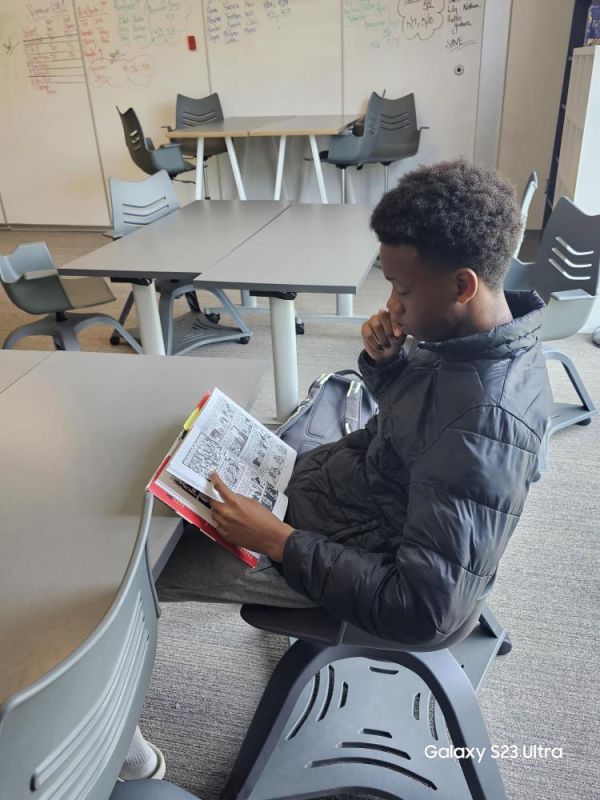
LEADing Internationally: Annual Spotlight Night to Support Learning in Any Language
LEADing Internationally emphasizes a strengths-based approach which values learning in any language (Regional Educational Laboratory Program, 2015). This project seeks to provide materials in students’ home languages (Arabic, Chinese, English, Somali & Spanish) for student project work, required…
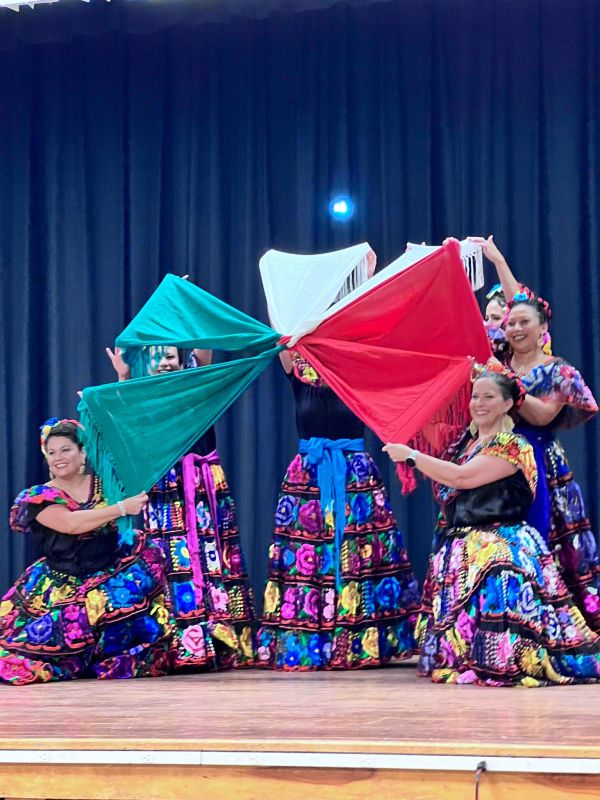
Culturally Aware Comets: Experiencing Different Cultures through Books, Food, and Games
Mark Twain Elementary has a diverse population of students and staff, many of whom come from different backgrounds. Our school's diversity needed to be celebrated and recognized. Many students come from low-income families. These students have yet to have the opportunity to travel or gain…
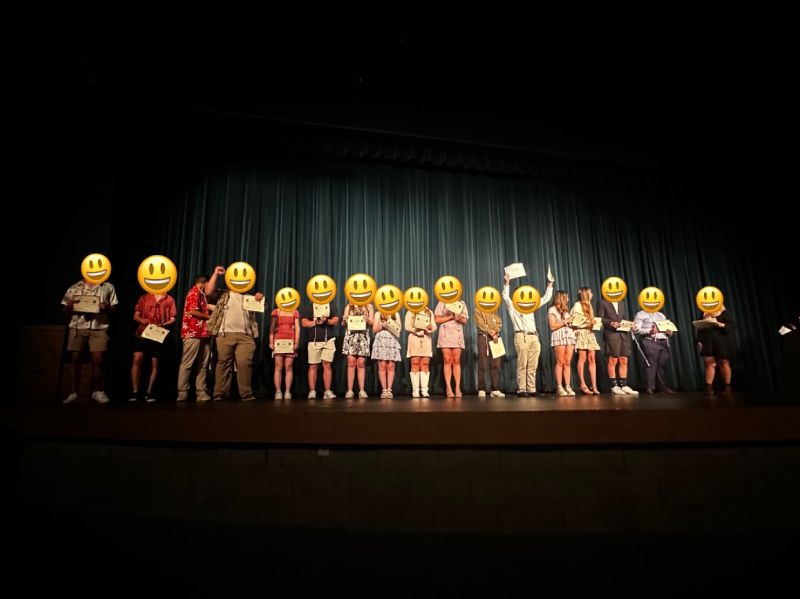
Heritage Voices: Empowering & Celebrating Biliteracy
The Heritage Voices: Empowering & Celebrating Biliteracy project aims to support heritage speakers in developing their bilingual and biliterate abilities. Given the large population of Spanish-speaking students in our district, our primary goal is to provide resources and guidance to heritage…
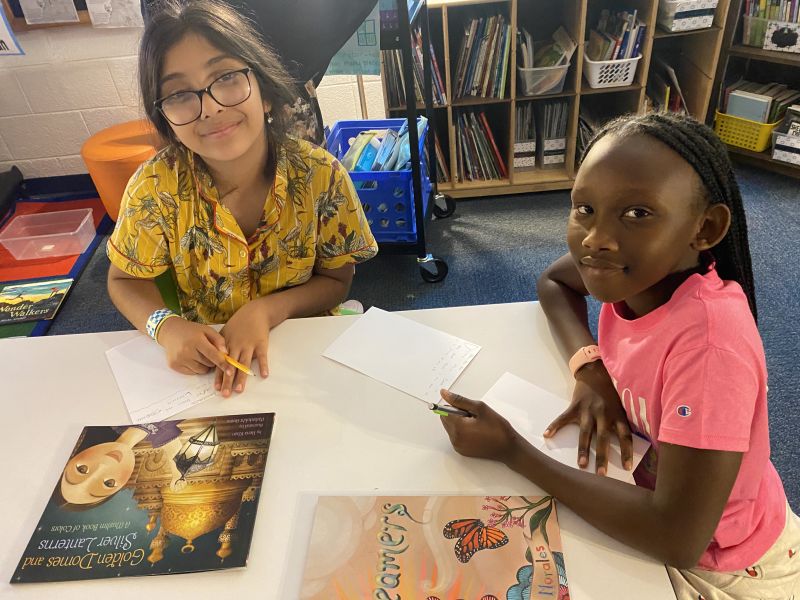
Cross-Town Pen Pals: Support Multiculturalism in Classrooms
The main objective of this pen pal project was to use diverse books representing cultures around the world to make connections with students in a different classroom in the district. Students used multicultural books to collaborate throughout two reading units that focused on theme, inferring, and…
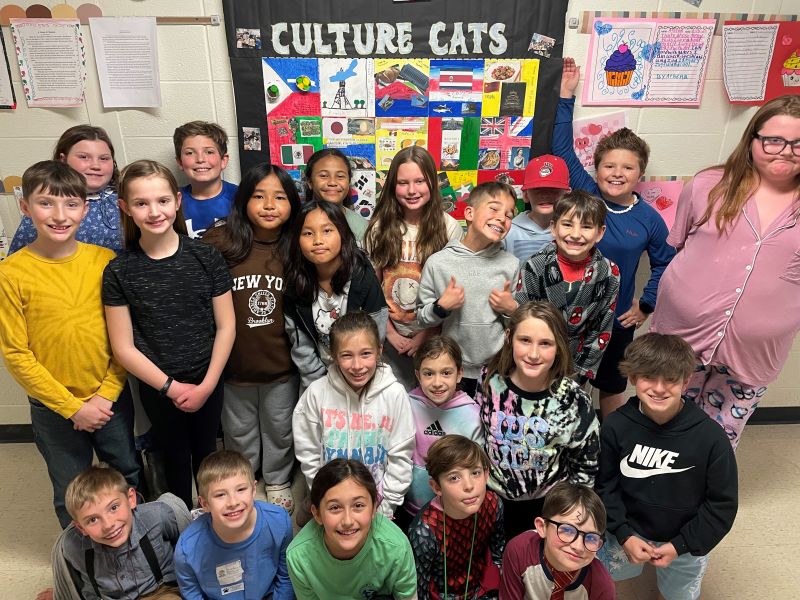
Culture Cats: Exploring Countries and Cultures
Culture Cats is an after-school club that promotes learning and exploring other countries and cultures. We are called Culture Cats because our school has many English Learners (ELs) that make up our student body and our mascot is a wildcat. We use books, guest speakers, games, crafts, and snacks to…
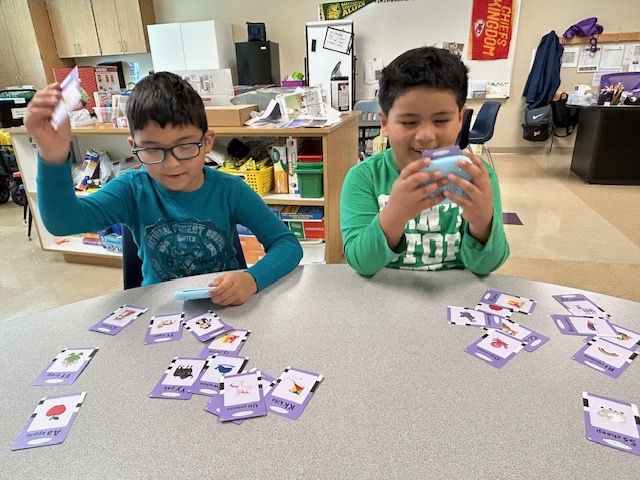
Activities for English Learners: Supporting ELs in the Classroom
The Monett School District boasts a richly diverse student body, with English Learners (ELs) representing the fastest-growing demographic nationwide, having increased by 60% over the last decade (Breiseth, 2015). Our district welcomes students from various countries, with Spanish being the…
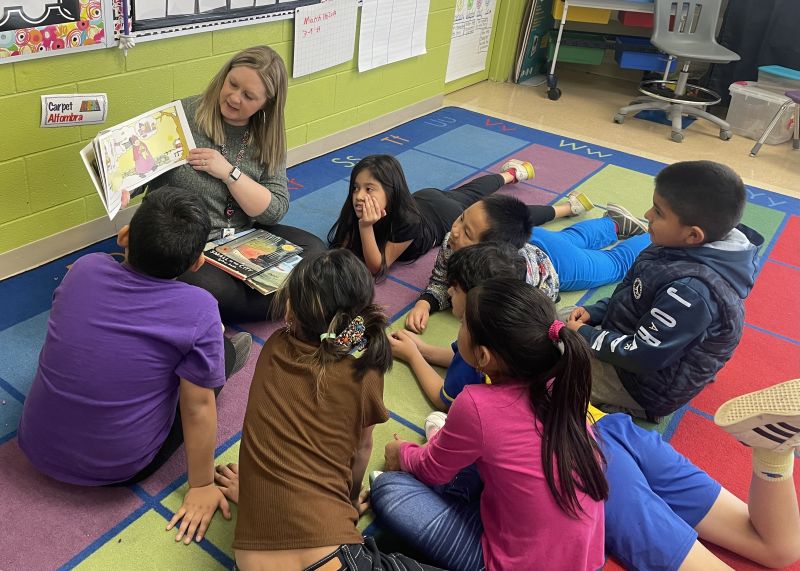
Home-to-School Communication: Connections with Wordless Picture Books
The Monett community has twenty plus different languages or dialects spoken here. Newcomer families from other countries are on the rise, and there is a constant need to help students learn English as a second language. The purpose of this project is for students to practice their language skills at…
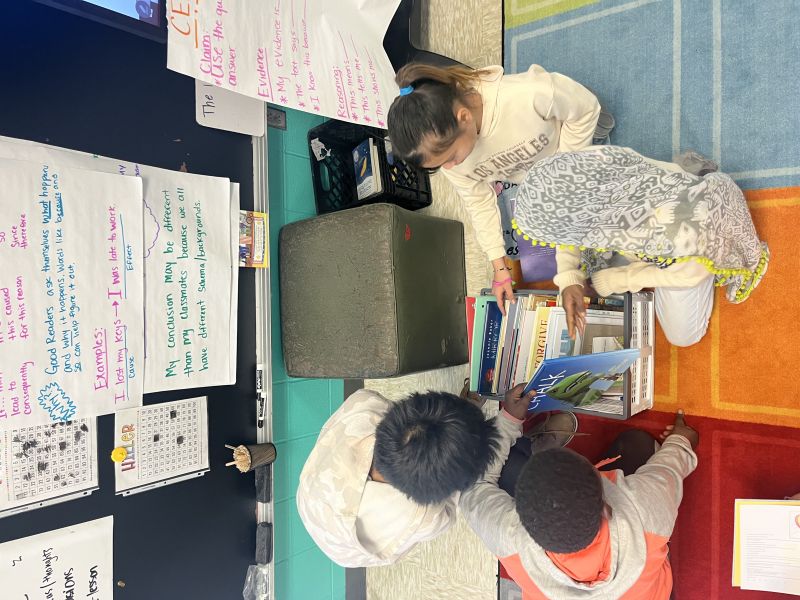
Wordless Picture Books: Bring Life to Language
My project’s purpose is to give English Learners (ELs) access to text through wordless picture books. The goal of using these books in our class and school is to engage students who are multilingual in our classrooms. Students may work on their language skills as well as reading and writing skills…
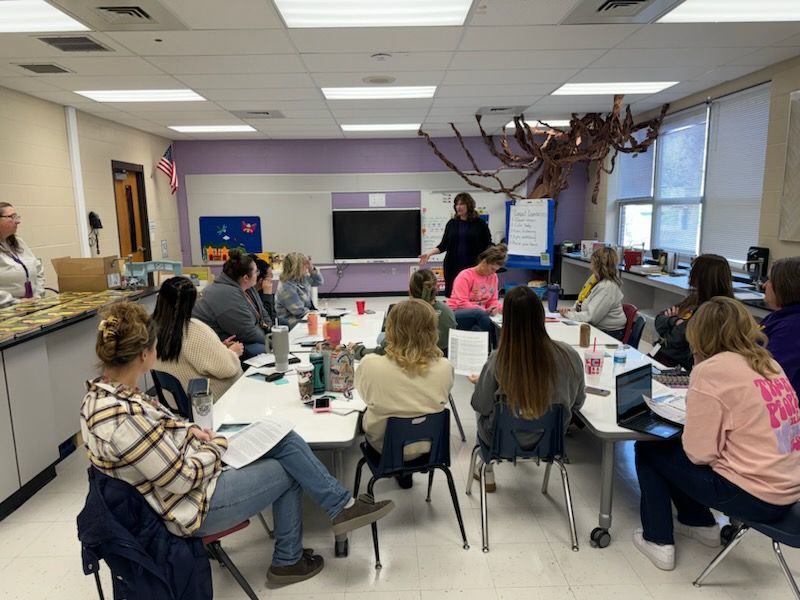
Developing a Culturally and Linguistically Responsive School: Professional Development to Highlight Assets ELs Bring to the Classroom
The Monett R-1 School District serves a large population of English Learner (EL) students; out of 2,346 students, 48% identify as a minority. Many students come from low socio-economic backgrounds and have minimal literacy exposure. About half of the students in each Monett classroom are ELs, and…
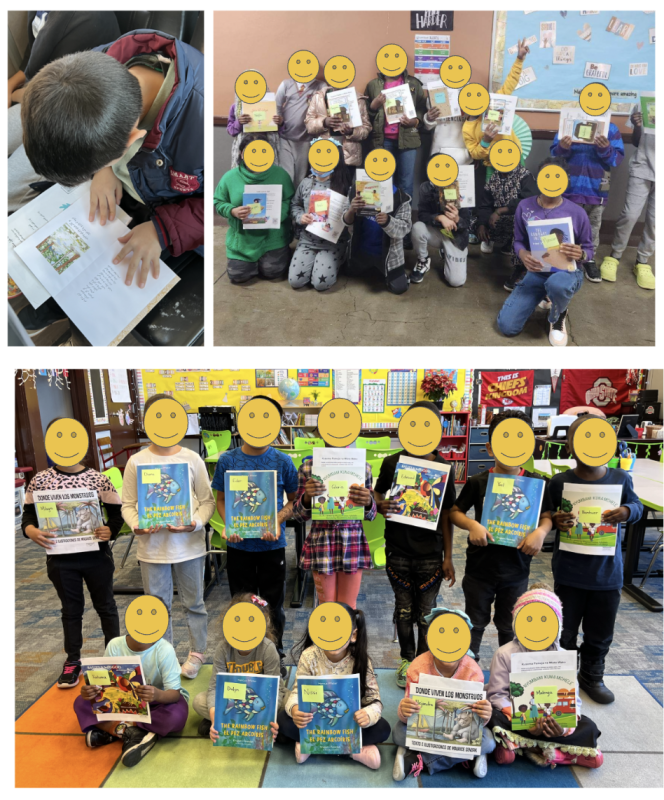
Home Language Reading Skills: Creating Routines for Literacy at Home
As many refugee and immigrant families arrive in America, their focus on language and literacy often shifts exclusively to the English language. Multilingualism is a strength, and it is important that our families maintain their home language literacy skills in conjunction with their English…
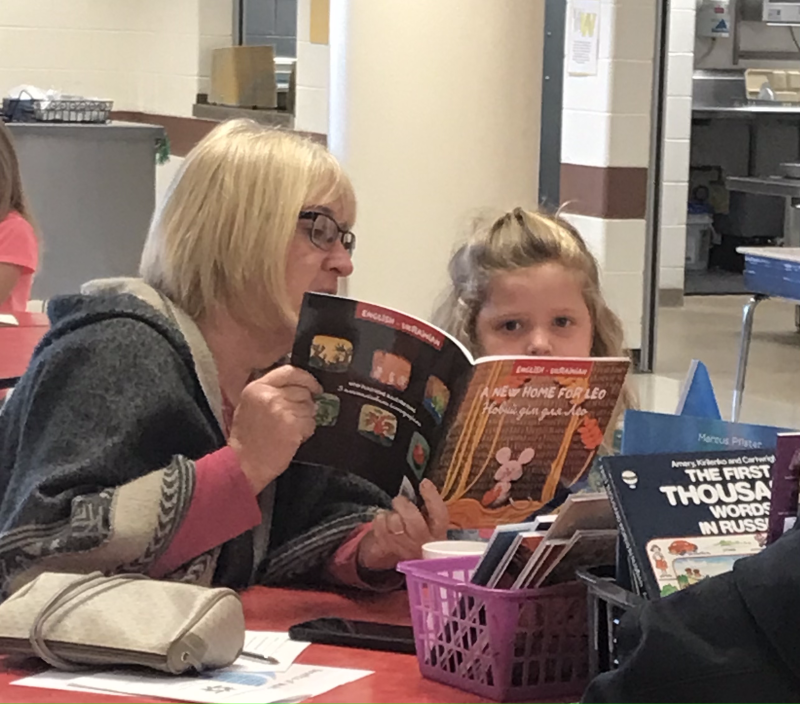
Biliteracy Breakfast: Promoting Multilingual and Multicultural Literature in a Casual Setting
Many multilingual families forgo maintaining literacy in their heritage language in the pursuit of English. It is important to highlight the value and benefits of continuing the development of home languages. By inviting students and families to read together and explore literature and language, we…
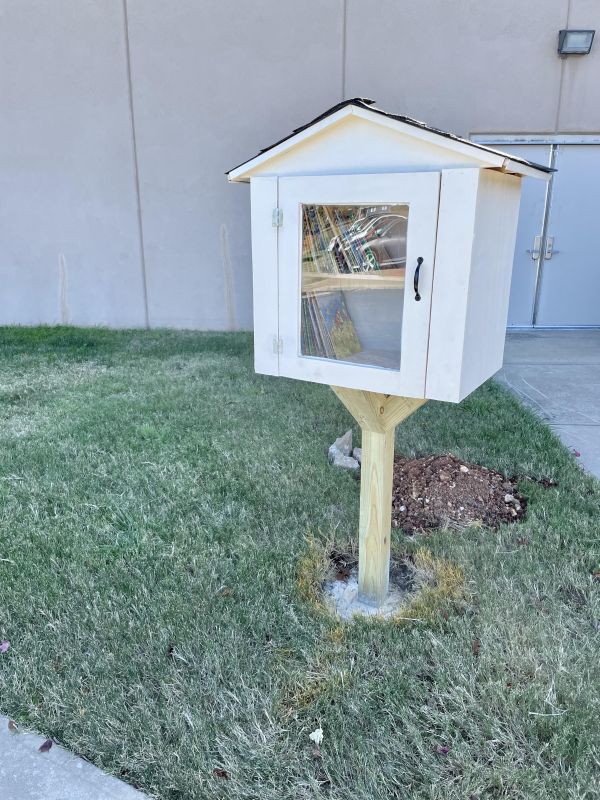
Our Little Library: Using Little Lending Libraries to Meet Multilingual Needs
Many families of English Learners (ELs) are not able to read books from school with their child or help with homework because of the language barrier. Since some families believe they are unable to help their children with English and/or homework, they can become very disconnected from their child…
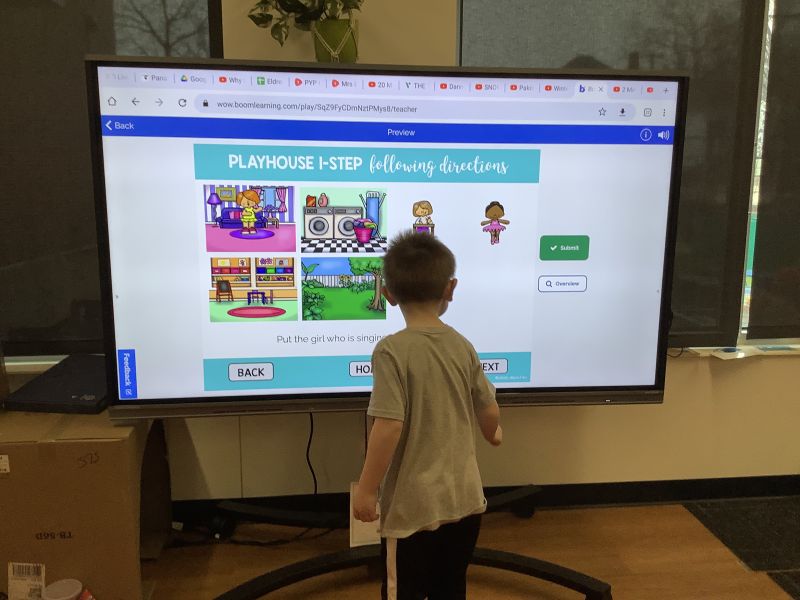
Rounding Up Resources: Helping Early Childhood Teachers Meet Multilingual Learner Needs
There are many resources available to support educators of English Learners (ELs), however, having access to those materials isn’t always easy. One cannot overstate the value of having resources available for teachers. We know that “without specific knowledge related to language development, even…
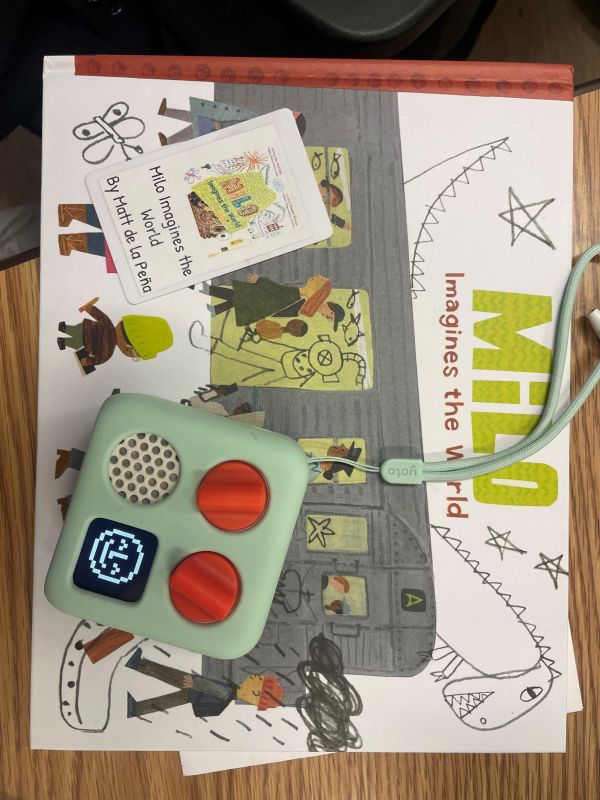
Multilingual Listening Library: Using Yoto audio players to support all students
Three second-grade classrooms offered their students access to a multilingual listening library. The main objective of this project was to promote the use of home languages and encourage English language acquisition.This project had two primary goals:To provide students with frequent access to…
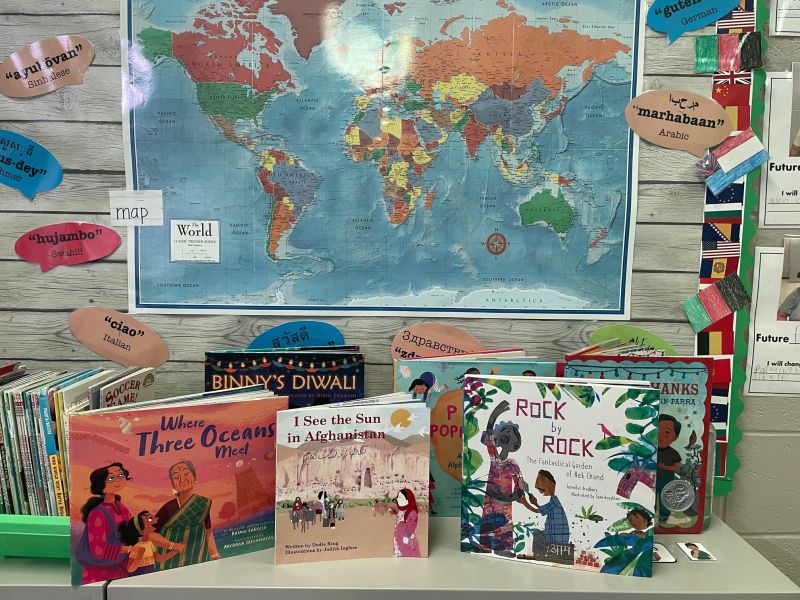
Around the World: Family Literacy Night
Around the World Family Literacy night is a project designed to highlight differences in culture and build literacy skills. As an EL teacher in my district, I understand the importance of creating opportunities for our students and families to learn about other cultures within our school community.…
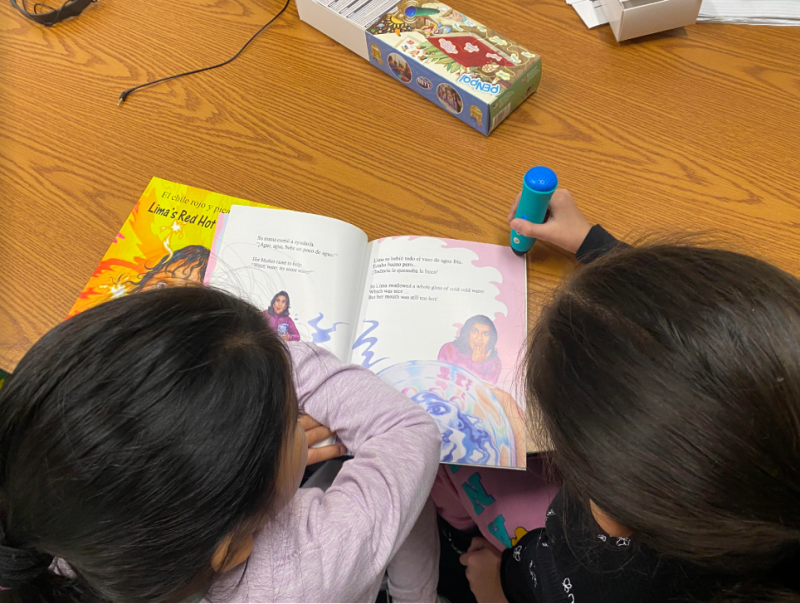
Home-to-School Literacy Project: Increasing family literacy with bilingual resources
Family literacy activities are essential for student academic success in school. The Home-School Literacy Project equips students and parents with bilingual activities, books, and resources to support their literacy skills. Families participate in a literacy night to share their own experiences and…
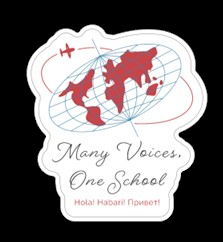
Many Voices, One School: Using QR codes to give ELs a voice
Many of our students come to us from various countries, backgrounds, and cultural experiences. While some families bring educational experiences from their home countries before relocating to the United States, others, particularly our newcomers, may not have a strong literacy background or history…
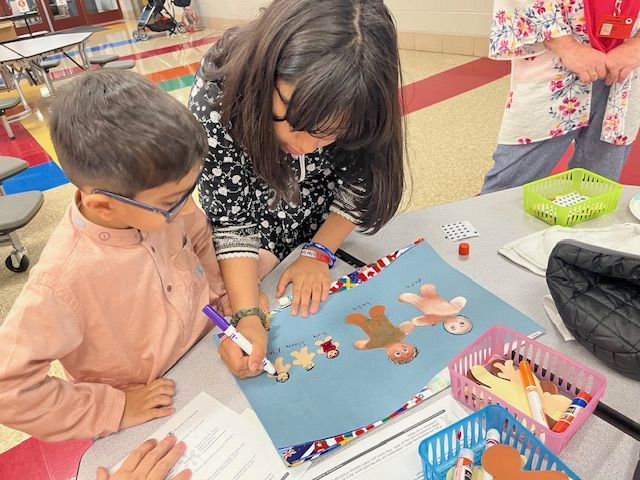
A Multicultural Pirate’s Reading Night
Our school mascot is a pirate. My project, A Multicultural Pirate’s Reading Night, was an event in which multicultural families who have children enrolled in Preschool or Kindergarten were invited to learn about the importance of promoting literacy in their first language as well as English. The…
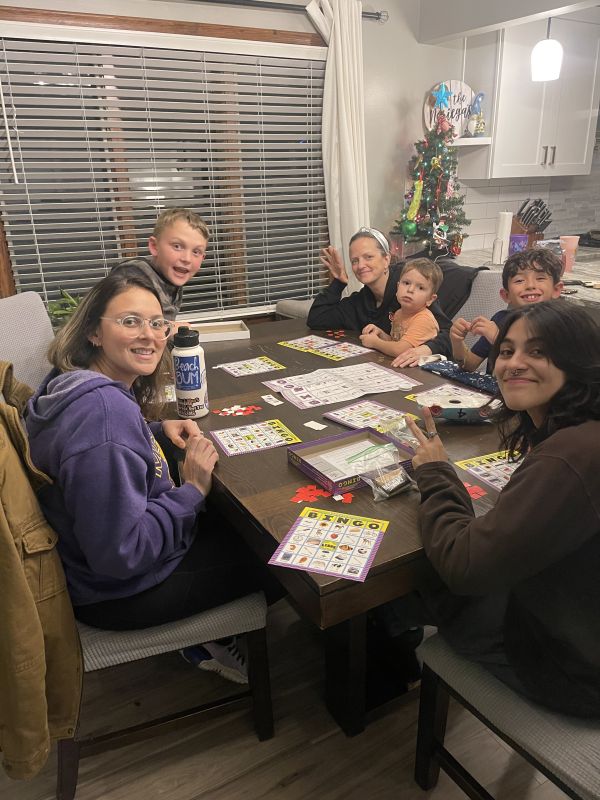
Promoting Family Conversations in Multiple Languages
There is a need for deep conversation, even at a first-grade level. The purpose of the project is to promote conversations between students and their families via play, read-alouds, and everyday activities through literacy kits that students can check out. The kits include books, phonics games,…
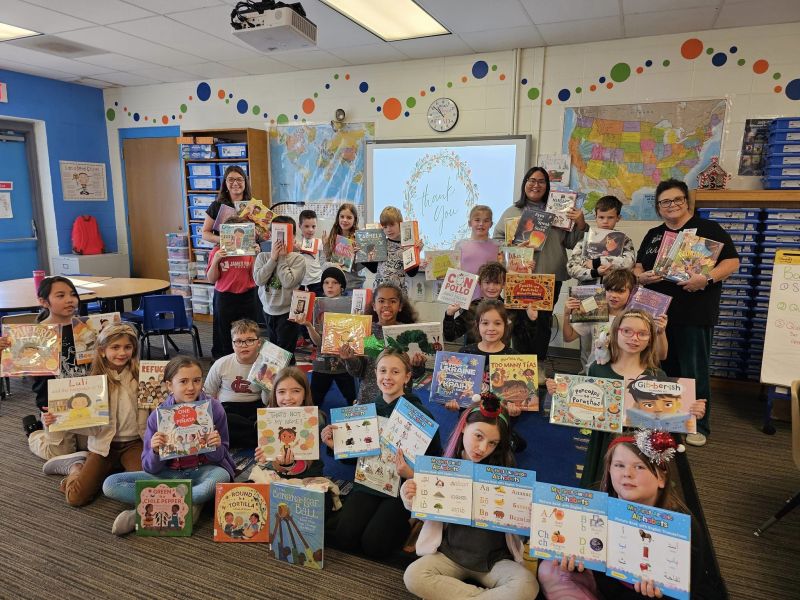
Celebrating Multilingual Magic: Nurturing the Social and Emotional Well-being of ELs
Wanda Gray Elementary stands as a cornerstone for education in Springfield, Missouri, providing a nurturing space for a diverse student population. Currently hosting 483 students weekly, with 29 benefiting from English Language Development (ELD) services and speaking languages other than English at…

A World of Languages in Our Classroom: Celebrating cultural diversity with guest readers
As a model language-rich classroom in my district, it is my goal to provide a comfortable, interactive environment for our multilingual students and their families. When students see their native language in books, posters, and through multimedia presentations they feel valued and have a sense of…
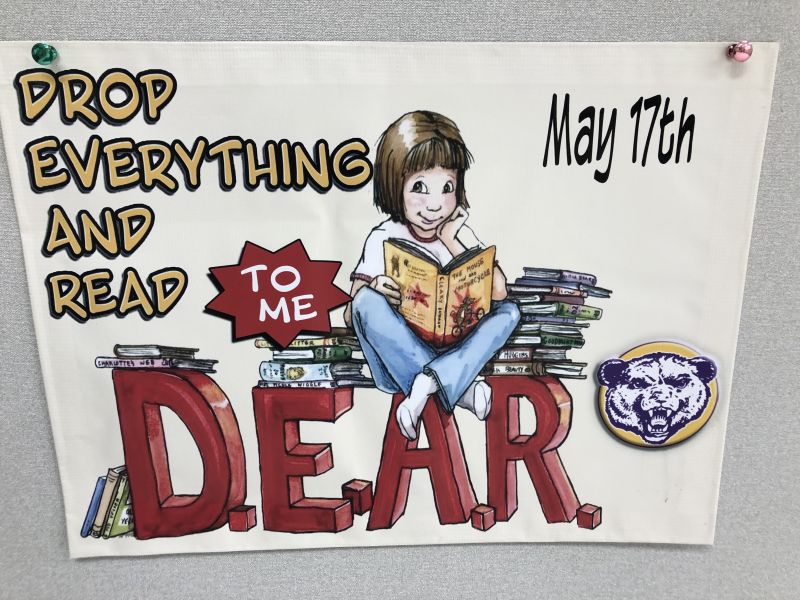
DEAR to Me: Fostering biliteracy through middle school mentors
DEAR to Me stands for Drop Everything and Read to Me and that is exactly what happened at the Monett Early Childhood Center.DEAR to Me is a special time for Middle School students to come and read in small groups. Our kindergarten students got to hear books read to them in English, Spanish and…
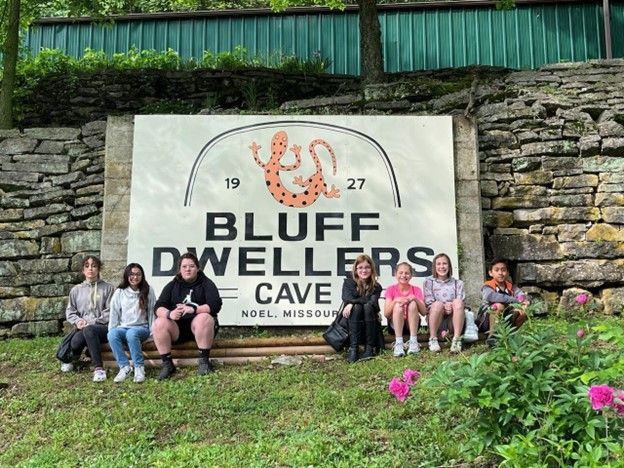
Dig Into Reading: Promoting students reading 15 minutes daily in school and at home
Through the Dig Into Reading multiliteracy project, we have created a culture of reading within our school and are continuing to promote reading engagement at home. We have been able to provide multilingual literacy resources and encouragement to enhance students' reading in their preferred…
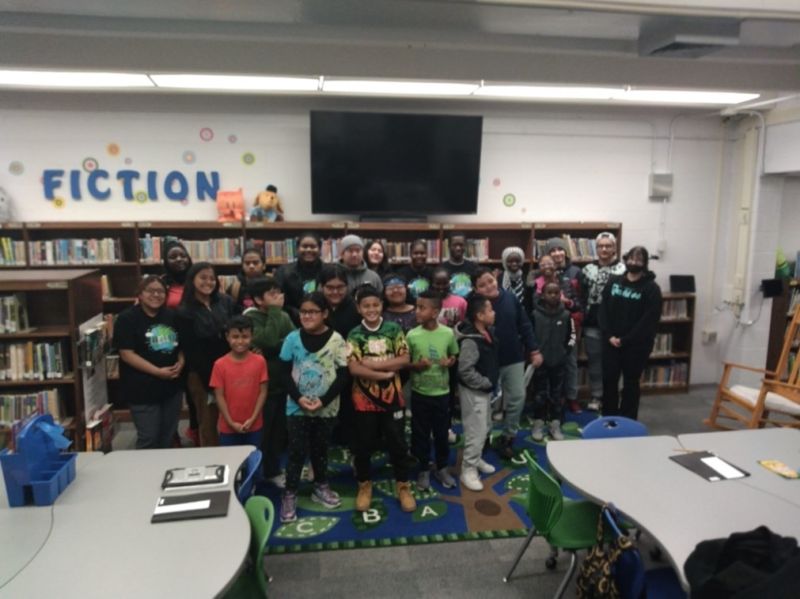
HELLO! HOLA! XIN CHÁO! BONJOU! HALO! Connecting high school and elementary ELs
As the population of English learners (ELs) continues to grow in our community, students can utilize their home language as a means to develop second language skills. The ELL Outreach Program brings together students of different ages yet similar cultures and languages to improve their English…
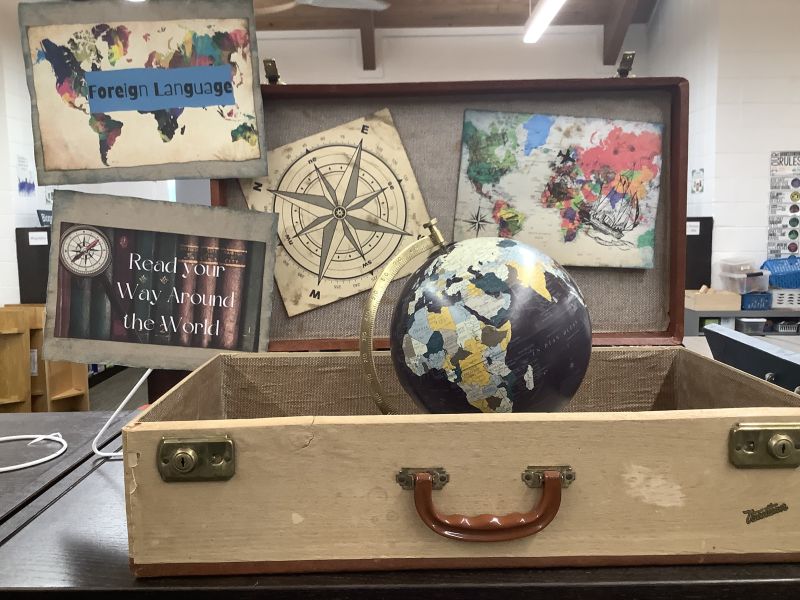
Many Languages, One Shelf: The Building Bilingual Book Section Project
This project allows English learners the opportunity to check out materials that represent diverse cultures and languages. Most materials are bilingual and include English translations on the same page. These resources promote and maintain ELs’ home languages and build English proficiency. As a…
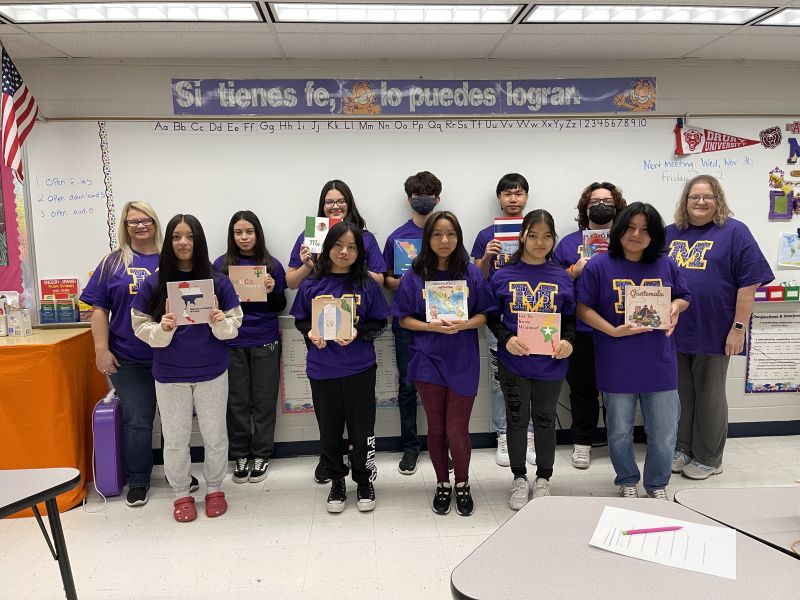
Our Cultural Heritage: Students create a bilingual alphabet book of their home country with family assistance
Our Cultural Heritage is a project designed for students and families to work, share, and learn together. This project is designed for students to practice various reading, writing, and speaking skills to create an alphabet book about their families’ home countries. Using a digital online book…
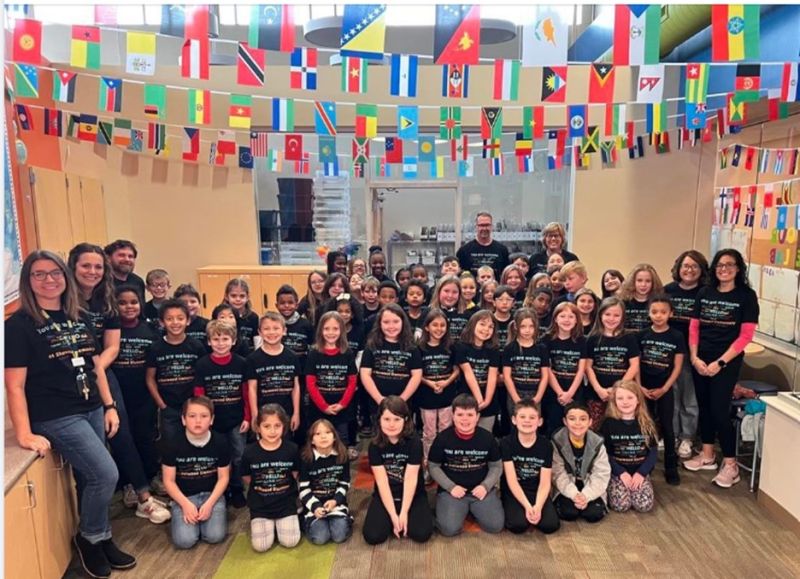
Language Clubs: Promoting cultural diversity and biliteracy
The students in our school come to us from many different backgrounds and cultural experiences. As educators, it’s our job to make all students feel welcomed and safe at our school and in our classrooms. Promoting and valuing the first language helps English learners and bilingual children feel more…
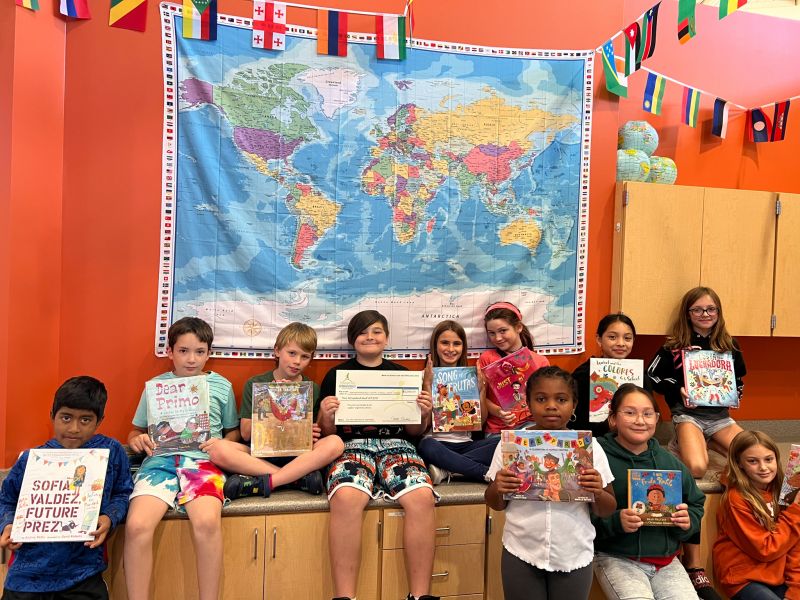
Welcome to Our Language Lab
How can we make our schools more welcoming, accepting, and engaging for our students and families joining us from other places around the world? With a Language Lab!

Multilingual Garden Unit
A community garden not only adds beauty to a school but also instills pride in the students that help build it. By utilizing best practices that teach English Learners (ELs), students explored how to design a garden.
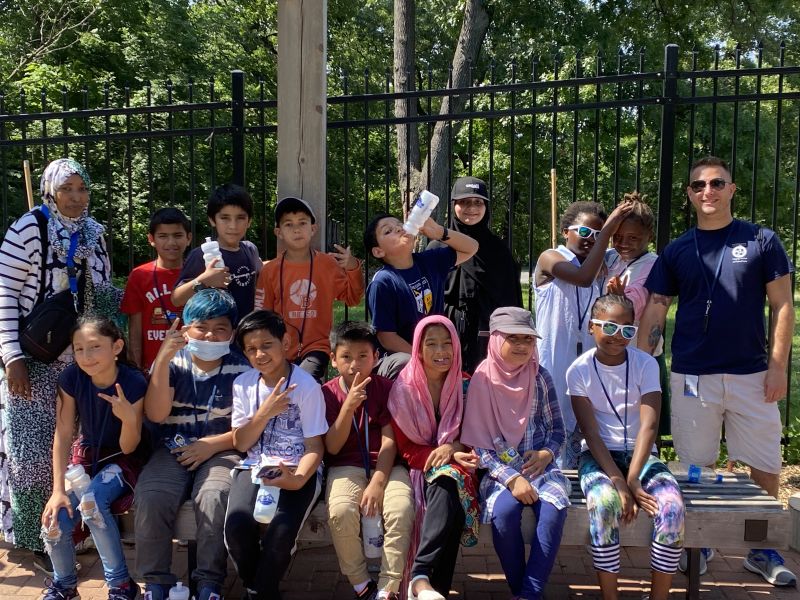
Multilingual Story Garden
A community garden not only adds beauty to a school but also instills pride in the students that help build it. By utilizing best practices for English learners (ELs), students visited a local community garden in the city to learn about gardening and sustainability. They also participated in a story…
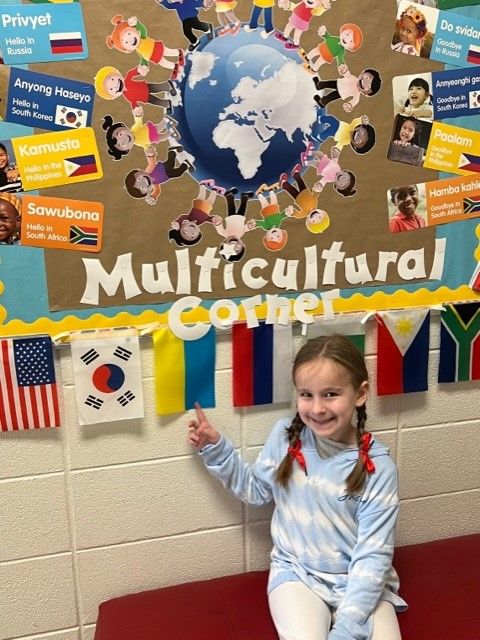
Multicultural Newsletter
The multicultural newsletter aims build connections with multilingual families by getting to know them and by introducing them to the school community. Amber Troye shares her protocol and experiences that can help educators deepen their knowledge about multilingual learners’ home cultures,…

Family Literacy Night
The Family Literacy Night project involves caregivers in the life of an elementary school. In preparation for the event, reading buddies in kindergarten and 4th grade partner to read multicultural books; they also learn to tell wordless picture books and author their own.
Read the full blueprint.
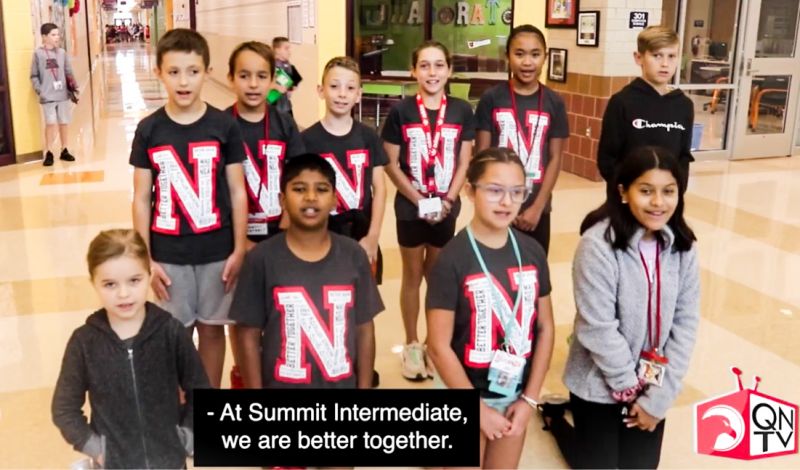
Better Together Unit in Nixa Public Schools
Kara Griffin at Summit Intermediate in Nixa Public Schools presents the blueprint of a project that aimed to welcome new families and unite the school around exploring the home cultures and languages of the students who attend. The project contributed a multilingual collection to the school library…
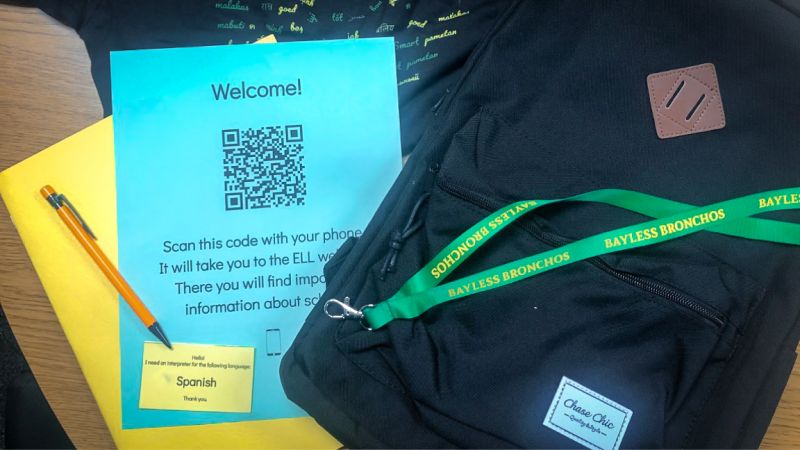
Newcomer Welcome Kits
Sarah Reeves at Bayless School District in St. Louis, Missouri describes her school's activities that aimed at creating a welcoming environment for newcomer refugee families by supplying them with useful items in a thoughtfully assembled backpack.
Read the full blueprint.
